 Petzlover
Petzlover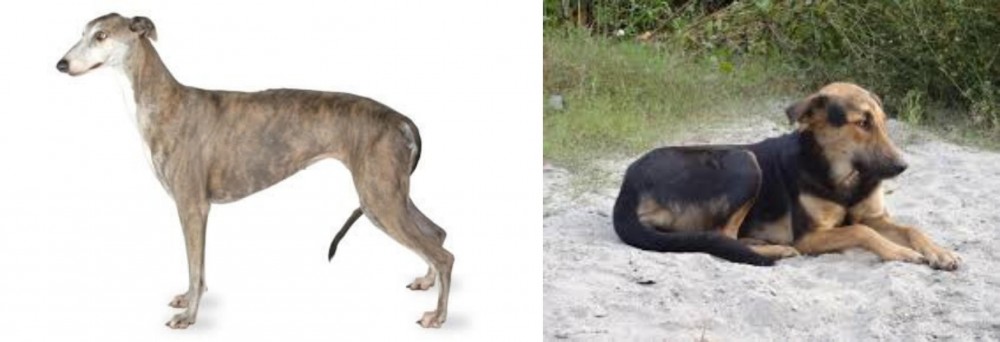 Greyhound is originated from United Kingdom but Indian Pariah Dog is originated from India. Greyhound may grow 12 cm / 5 inches higher than Indian Pariah Dog. Greyhound may weigh 10 kg / 23 pounds more than Indian Pariah Dog. Both Greyhound and Indian Pariah Dog has same life span. Greyhound may have more litter size than Indian Pariah Dog. Both Greyhound and Indian Pariah Dog requires Low Maintenance.
Greyhound is originated from United Kingdom but Indian Pariah Dog is originated from India. Greyhound may grow 12 cm / 5 inches higher than Indian Pariah Dog. Greyhound may weigh 10 kg / 23 pounds more than Indian Pariah Dog. Both Greyhound and Indian Pariah Dog has same life span. Greyhound may have more litter size than Indian Pariah Dog. Both Greyhound and Indian Pariah Dog requires Low Maintenance.
 The Greyhound belongs to a group of dogs known as sighthounds. This is an ancient sighthound breed dating back a few thousands years.
The Greyhound belongs to a group of dogs known as sighthounds. This is an ancient sighthound breed dating back a few thousands years.
The dog has been bred for racing but today is also a popular pet. They’ve also been used for hunting too because of their keen eyesight and sense of smell.
In the United States there are Greyhounds registered with the American Kennel Club as well as those registered with the National Greyhound Association.
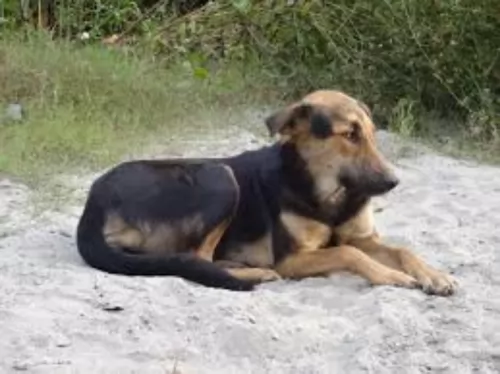 The Indian pariah, known also as the Indi-dog or In-dog, is an ancient dog breed common throughout India as well as Bangladesh.
The Indian pariah, known also as the Indi-dog or In-dog, is an ancient dog breed common throughout India as well as Bangladesh.
A breed standard does exist for the dog with the Indian Kennel Club and the dog has also been recognized by the Primitive and Aboriginal Dog Society.
A great dog enthusiast, Indian environmentalist, M Krishnan, has written about this ancient dog breed, telling about its wonderful temperament and its hardy constitution.
 The Greyhound is a tall, muscled, long-legged, slender dog with a flexible spine, a deep chest and exceptional eye sight.
The Greyhound is a tall, muscled, long-legged, slender dog with a flexible spine, a deep chest and exceptional eye sight.
The Males are usually about 71 to 76 cm in height with the females being slightly smaller. The dogs weigh in the region of 27 to 40 kg. The coat of the dog is short and smooth and is found in an assortment of colors, from fawn to white, tan, black and brindle.As far as grooming goes, he is looked upon as a low maintenance breed.
He has a long narrow muzzle, semi-erect/semi-floppy short ears and a long slender tail.
Sometimes referred to as being hypoallergenic, you need to allow your Greyhound indoors as the dog doesn't have an undercoat. He is therefore more susceptible to extreme temperatures. The face is long, narrow and pointed, the ears short and half-erect-half-floppy with a long, thin, whip-like tail.
Intelligent and gentle, the Greyhound is described by those who have owned them as wonderful pet. They are somewhat aloof around strangers but love their own human family. This is a non-aggressive, gentle, docile, calm dog. They are loving and get on well with their entire family, whether human beings or pets.
They’re sensitive dogs who appreciate quiet, calm environments. They may be quiet, but they are still social, loving the company of their family. They’re not great barkers and because they are non-aggressive, they don’t make wonderful guard dogs.
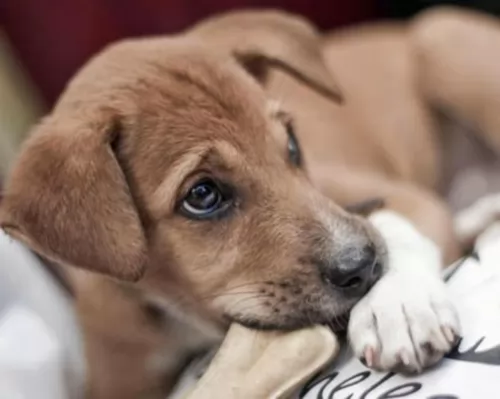 The Indian Pariah dog is a medium sized, lanky looking dog with the males and females standing at 46cm to 64cm in height and weighing roughly between 15 to 30kg.
The Indian Pariah dog is a medium sized, lanky looking dog with the males and females standing at 46cm to 64cm in height and weighing roughly between 15 to 30kg.
These dogs aren't big eaters so they tend to be lean and muscular. This is a double coated dog with the hair being coarse and fawn in colour or reddish brown.
He has fairly large, erect ears and brown eyes. He has a long tail which is held down but when he is excited it is held high and over the back, curling at the tip. There is sometimes white around the face and chest.
The Pariah dog is a social dog but he is somewhat timid, even though they make excellent watch dogs, being territorial around their human family. Being territorial, he can have an aggressive side to him so it is wise to have him trained and socialized as then he is obedient and capable of getting on well with children in the home.
These dogs are also very intelligent and therefore easily trained. He is an active dog and likes to be kept busy, wanting to be participating in the activities of his human family.
 The Greyhound, forgetting about the racing part, makes a superb pet too. He won't do well in a household where there are screaming, noisy children and adults as he wants a quiet home to live in.
The Greyhound, forgetting about the racing part, makes a superb pet too. He won't do well in a household where there are screaming, noisy children and adults as he wants a quiet home to live in.
He can get on well with kind, gentle, respectful children as well as with pets in the home. Just like any dog, he will also need training and socialization as this can build up his confidence and then he knows how to please his owners and what they expect.
The Greyhound will require a gentle, fair, kind owner who understands his need for peace and quiet, and then he becomes a most wonderful devoted, loyal and loving pet.
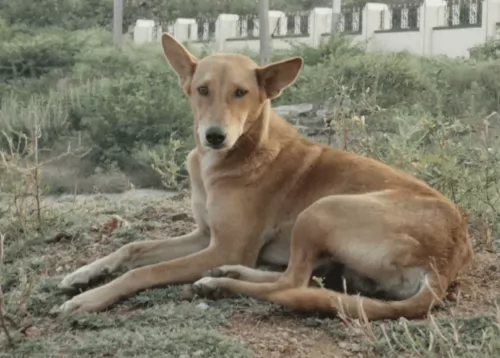 The Indian Pariah dog is just an ordinary dog looking to be a superb companion for you. These are dogs with no airs and graces and in fact they have lots of positive attributes about them.
The Indian Pariah dog is just an ordinary dog looking to be a superb companion for you. These are dogs with no airs and graces and in fact they have lots of positive attributes about them.
They are just your ordinary, social dogs who are able to form strong, loyal friendships with their human owners. He is a faithful dog breed and he has had a long association with humans dating back to thousands of years. He is healthy and cheerful and he is just waiting for you to give him a chance so that he can show you what a cheerful, playful, devoted, wonderful friend he can be to you too.
 Greyhounds are a wonderfully healthy dog breed and with good care can reach 14 years of age. They aren't prone to many genetic illnesses and unlike so many other dog breeds, this is one dog that doesn't battle with hip dysplasia – in fact it is almost unknown among this tall, slim dog breed.
Greyhounds are a wonderfully healthy dog breed and with good care can reach 14 years of age. They aren't prone to many genetic illnesses and unlike so many other dog breeds, this is one dog that doesn't battle with hip dysplasia – in fact it is almost unknown among this tall, slim dog breed.
The Greyhound does however, have a deep chest and this is what makes him vulnerable to bloat or gastric torsion. You have to take action quickly if you detect bloat – the stomach swells up – as this is a life-threatening condition that can occur quickly when air is trapped in the stomach. The stomach can become twisted.
Make sure your Greyhound doesn't gobble his food too quickly and preferably give him smaller meals as opposed to one or two large bowls of food.
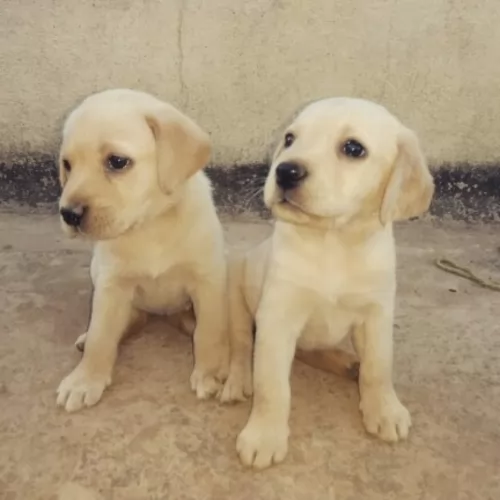 This is a dog which can live to between 13 and 15 years of age when he is treated well.
This is a dog which can live to between 13 and 15 years of age when he is treated well.
These Indian Pariahs are a natural dog breed, and to this end they are free of genetic health concerns such as hip dysplasia which is a very common ailment with nearly all dogs.
Remember that every dog stands a good chance of picking up some life-threatening illnesses if not vaccinated against them. Some of these diseases to be concerned about are canine distemper and parvo-virus. Rabies, kennel cough and parasites such as fleas and ticks can also pose a real danger to your pet.
The Pariah has been around for a very long time and today he is a robust, low maintenance pet that isn't going to cost you a lot of money .
 Your Greyhound’s breeder will be the best guide for the type of- and the amount of dog food your hound will need. Of course, a growing puppy has different nutritional needs from a mature or senior Greyhound.
Your Greyhound’s breeder will be the best guide for the type of- and the amount of dog food your hound will need. Of course, a growing puppy has different nutritional needs from a mature or senior Greyhound.
Growing puppies and young dogs use a lot of energy so they will require a diet rich in protein. According to Greyhound experts, an adult Greyhound dog will need an average daily caloric intake of 1740 calories.
Older dogs and those that have been spayed or neutered will need less. Apart from the very best quality kibble, your Greyhound will most certainly require raw meat from time to time. You can also give him some cooked chicken, vegetables and brown rice. He should have access to a constant supply of fresh, cool water.
The Greyhound's coat is smooth and short and he sheds very little so he will only need a gentle brush-down once or twice a week.
Having a relaxed lifestyle is what your Greyhound will love. He is a dog that needs to spend time indoors. When outdoors, whether you live in the city or the country, he will need daily walks and a run in the park regularly.
Just because he is a sprinter, it isn't wise to take him with you with cycling or jogging as he is geared for a short burst of speed as opposed to a long run.
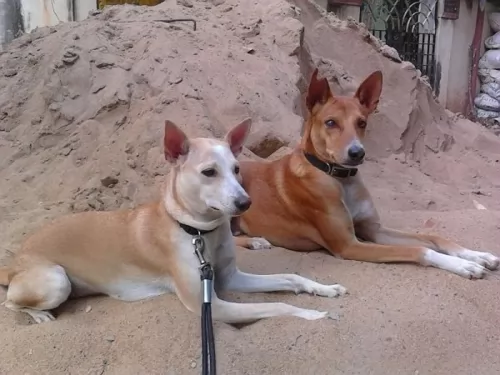 This is a low maintenance dog who also happens to shed little. A brush once or twice a week will be sufficient and it will keep the fur shiny and healthy.
This is a low maintenance dog who also happens to shed little. A brush once or twice a week will be sufficient and it will keep the fur shiny and healthy.
Your puppy will need to be vaccinated at 6 weeks of age. There are some veterinary clinics in India that offer free vaccine shots. Your puppy will be dewormed too. Make sure he has a nice dry, warm place to sleep, and for during the day, ensure that there is a shady spot for him too.
It's always a good idea to try and feed your puppy the best food there is. If you visit a veterinary clinic, find out what the most appropriate food would be for your puppy and how often you should feed him during the day.
If you feed your adult Indian Pariah dog kibble and you're able to, try and add in some home-made food too such as cooked chicken or rice. Some raw meat added in from time to time will also do your dog the world of good. Make sure there is always a bowl of cool, clean water standing by.